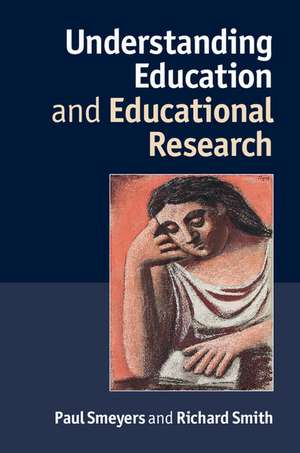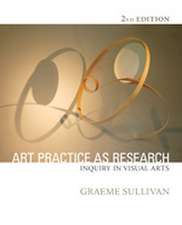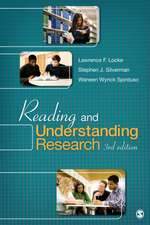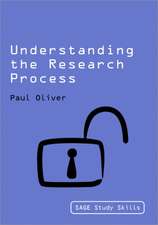Understanding Education and Educational Research
Autor Paul Smeyers, Richard Smithen Limba Engleză Paperback – 9 noi 2014
| Toate formatele și edițiile | Preț | Express |
|---|---|---|
| Paperback (1) | 300.92 lei 6-8 săpt. | |
| Cambridge University Press – 9 noi 2014 | 300.92 lei 6-8 săpt. | |
| Hardback (1) | 451.64 lei 6-8 săpt. | |
| Cambridge University Press – 12 noi 2014 | 451.64 lei 6-8 săpt. |
Preț: 300.92 lei
Nou
Puncte Express: 451
Preț estimativ în valută:
57.58€ • 60.12$ • 47.66£
57.58€ • 60.12$ • 47.66£
Carte tipărită la comandă
Livrare economică 04-18 aprilie
Preluare comenzi: 021 569.72.76
Specificații
ISBN-13: 9781107401617
ISBN-10: 1107401615
Pagini: 227
Ilustrații: 4 b/w illus.
Dimensiuni: 150 x 227 x 15 mm
Greutate: 0.32 kg
Editura: Cambridge University Press
Colecția Cambridge University Press
Locul publicării:New York, United States
ISBN-10: 1107401615
Pagini: 227
Ilustrații: 4 b/w illus.
Dimensiuni: 150 x 227 x 15 mm
Greutate: 0.32 kg
Editura: Cambridge University Press
Colecția Cambridge University Press
Locul publicării:New York, United States
Cuprins
Introduction; 1. Education and its research; 2. The nature of social science; 3. The idea of method; 4. The nature of philosophy; 5. The art of research; 6. Language, truth, and meaning; 7. On the dominant nature of educational research and its shortcomings; 8. Research, policy and practical reasoning; 9. The limits of measurement; 10. Parenting and government intervention in the family (case study I); 11. Researching happiness and well-being (case study II); 12. Philosophy and research.
Recenzii
'Smeyers and Smith have produced a coherent collection of papers that provide a healthy antidote to many of the cliche ridden discourses that are increasingly dominating the theory and practices of educational research - the inappropriate and uncritical aping of scientific method as a vehicle for educational inquiry and the assumption that only this will contribute to rigorous educational inquiry ('scientism'); the insistence on quantifying the unquantifiable ('metricophilia' is the new perversion) and the marginalising of modes of understanding, discernment and appreciation rooted in literature, history, social anthropology and philosophy. The critique of educational research is not directed against its uselessness but against its failure to grasp the stuff of humanity that it is dealing with and to acknowledge the sources that have a continuing capacity to illuminate this experience. It is an antidote that should be taken preventatively by all students and, if it is not too late, as curative medicine by all those that are teaching them 'research methods'.' David Bridges, Emeritus Professor, University of East Anglia; and Director of Research, University of Cambridge Faculty of Education
'We seem to have entered a new dim age, a murky mix of scientism and managerialism in which accountability is reduced to accounting, judgment replaced by rubrics, and science parodied as a cultic religion of methods and statistics. In such an age, one needs guides such as Smeyers and Smith who, with their perfect blend of philosophical erudition and common sense, show how the craze for 'what works' distracts us from the crucial question of what matters in education, how the search for genuine understanding gets left behind in the contemporary parade of flimsy correlations, sloppy conceptualizations, and pseudo-generalizations.' Chris Higgins, University of Illinois, Urbana-Champaign
'We seem to have entered a new dim age, a murky mix of scientism and managerialism in which accountability is reduced to accounting, judgment replaced by rubrics, and science parodied as a cultic religion of methods and statistics. In such an age, one needs guides such as Smeyers and Smith who, with their perfect blend of philosophical erudition and common sense, show how the craze for 'what works' distracts us from the crucial question of what matters in education, how the search for genuine understanding gets left behind in the contemporary parade of flimsy correlations, sloppy conceptualizations, and pseudo-generalizations.' Chris Higgins, University of Illinois, Urbana-Champaign
Notă biografică
Descriere
Argues that good educational research is often in essence philosophical rather than a matter of conventional 'research methods'.











